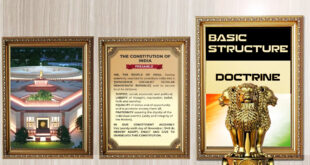In further strengthening the Foreigners Tribunal, the judiciary has failed to fulfil its duty as the last protector of rights
On May 17, in a very short hearing, a three-judge Bench of the Supreme Court (the Chief Justie of India Ranjan Gogoi and Justices Deepak Gupta and Sanjiv Khanna) decided a batch of 15 petitions under the title Abdul Kuddus v Union of India . Innocuously framed as resolving a “perceived conflict” between two paragraphs of the Schedule to the Citizenship (Registration of Citizens and Issue of National Identity Cards) Rules, 2003, the judgment — little reported in the media — nonetheless had significant consequences for the ongoing events in Assam surrounding the preparation of the National Register of Citizens (“the NRC”).
Two parallel processes
What was the issue in Abdul Kuddus ? In short, it involved the status of an “opinion” rendered by a Foreigners Tribunal, as to the citizenship (or the lack thereof) of any individual. The issue arose because, in the State of Assam, there are two ongoing processes concerning the question of citizenship. The first includes proceedings before the Foreigners Tribunals, which have been established under an executive order of the Central government. The second is the NRC, a process overseen and driven by the Supreme Court. While nominally independent, both processes nonetheless bleed into each other, and have thus caused significant chaos and confusion for individuals who have found themselves on the wrong side of one or both. The petitioners in Abdul Kuddus argued that an opinion rendered by the Foreigners Tribunal had no greater sanctity than an executive order. Under the existing set of rules, this meant that an adverse finding against an individual would not automatically result in their name being struck off the NRC. Furthermore, the Tribunal’s opinion could be subsequently reviewed, if fresh materials came to light. This was particularly important because, as had been observed repeatedly, citizenship proceedings were riddled with administrative (and other kinds of) errors, which often came to light much later, and often by chance. And finally, the petitioners argued that if the opinion of the Foreigners Tribunal was used to justify keeping an individual out of the NRC, then that decision could be challenged and would have to be decided independently of the decision arrived at by the Tribunal. In short, the petitioners’ case was that the two processes — that of the Foreigners Tribunal and of the NRC — should be kept entirely independent of each other, and without according primacy to one over the other. Unsurprisingly, over the last few months, glaring flaws in the working of the Foreigners Tribunals have come to light. Questions in Parliament showed that as many as 64,000 people have been declared non-citizens in ex-parte proceedings, i.e., without being heard. Testimonies reveal these people are often not even served notices telling them that they have been summoned to appear. Alarmingly, an investigative media report featured testimony by a former Tribunal member who stated that his compatriots competed to be what was jokingly referred to as “the highest wicket-taker”, i.e. the one who could declare the highest number of individuals “foreigners”. When adjudicating upon a person’s citizenship — a determination that can have the drastic and severe result of rendering a human being stateless — only the highest standards of adjudication can ever be morally or ethically justifiable. But in further strengthening an institution — the Foreigners Tribunal — that by design and by practice manifestly exhibits the exact opposite of this principle, the Supreme Court failed to fulfil its duty as the last protector of human rights under the Constitution. The Court’s observations in the Kuddus case, and indeed, the manner in which it has conducted the NRC process over the last few months, can be traced back to two judgments delivered in the mid-2000s, known as Sarbananda Sonowal I and II . In those judgments, relying upon unvetted and unreviewed literature, without any detailed consideration of factual evidence, and in rhetoric more reminiscent of populist demagogues than constitutional courts, the Court declared immigration to be tantamount to “external aggression” upon the country; more specifically, it made the astonishing finding that constitutionally, the burden of proving citizenship would always lie upon the person who was accused of being a non-citizen. A parliamentary legislation that sought to place the burden upon the state was struck down as being unconstitutional. What the rhetoric and the holdings of the Sonowal judgments have created is a climate in which the dominant principle is the presumption of non-citizenship. Apart from the absurdity of imposing such a rule in a country that already has a vast number of marginalised and disenfranchised people, it is this fundamental dehumanisation and devaluation of individuals that has enabled the manner in which the Foreigners Tribunals operate, the many tragedies that come to light every week in the context of the NRC, and judgments such as Abdul Kuddus . It is clear that if Article 21 of the Constitution, the right to life, is to mean anything at all, this entire jurisprudence must be reconsidered, root and branch.
 Chinmaya IAS Academy – Current Affairs Chinmaya IAS Academy – Current Affairs
Chinmaya IAS Academy – Current Affairs Chinmaya IAS Academy – Current Affairs



